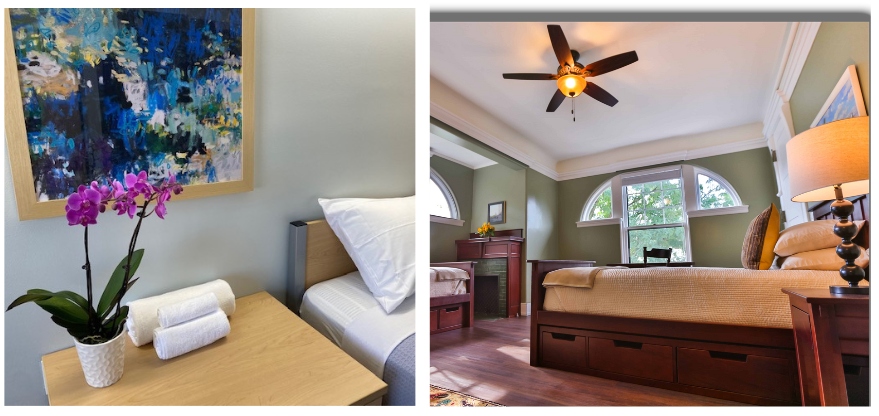Sleep-Friendly Environments & Mental Health

If you cannot fall asleep for 20 minutes, get up and change the scene!
One of the hallmarks of active addiction and other mental health conditions is insomnia. When you wake at 3 a.m. (blood sugar dropping) and rise like a vampire for a glass of cold water, it might be the worst time of day to be wide-eyed. Every problem seems insurmountable, rehashing regrettable behavior on an endless loop. The interesting thing about sleep and mental health is that it’s a classic chicken and egg situation. Mental disorders, including substance use disorders, cause sleeplessness. But the opposite is also true – insomnia causes mental disorders and a vulnerability to drugs and alcohol.
Sleep deprivation causes problems with self-image, appetite regulation, outlook, and optimism. Also, those who are sleep-deprived have a greater experience of pain, guilt, blame, and feelings of sadness and distress. At Sanford Behavioral Health, we emphasize sleep-friendly environments, comfortable beds, and lights-out strategies. Prioritizing sleep and sleep hygiene is even featured in process groups.

Sanford West Behavioral Health Campus and Sanford House at John Street – sleep-friendly environments!
Sleep and Mental Health
Most common mental disorders, from depression and anxiety to PTSD, are associated with disturbed sleep, and substance use disorders are no exception. The relationship may be complex and bidirectional; substance use causes sleep problems, but insomnia and insufficient sleep may also raise the risk of drug use and addiction.
Dr. Nora Volkow, “Nora’s Blog” National Institute on Drug Abuse (NIH)
“Anyone with disturbed sleep knows intuitively that it is bad for your health. There is nothing so dire (or fruitless) as staring at the ceiling in the middle of the night with a problem circling the psyche. Everything seems worse at the witching hour. And when you can’t sleep you are vulnerable to raiding the refrigerator for leftover pizza or taking a shot of vodka to “help you get drowsy”. And lack of sleep can lower immunity…., impact memory and decision making, and increase the risk of weight gain, diabetes, and high blood pressure.”
Sleep-Friendly Environments
Stress is often a trigger for sleep problems. Isolation and depression also causes sleeplessness. Remember the pandemic? Stress-related insomnia due to the COVID-19 (coronavirus) pandemic impacted everything from eating disorders to vaccine response. Loss of sleep, especially over time, has a negative effect on your overall health.
Following are 10 tips to create a sleep-friendly environment:
- Take a break from the news
- Create a daily schedule/routine (including bedtime) and stick to it
- Get light exposure in the morning! Our circadian rhythm is disrupted when working from home
- Skip naps
- Create a sleep-friendly environment with a comfortable, designated place to sleep
- Avoid clock watching – practice relaxation techniques during the day
- Doom-scrolling on your phone is a NO-NO
- Also avoid over-the-counter sleep aids and melatonin
- Limit caffeine and
- If you cannot fall asleep for 20 minutes, get up and change the scene – distract yourself with something relaxing
- Read this
As we navigate a worldwide rise in anxiety and mental health concerns, it will help you sleep better to know there are resources for mental health assistance. During the pandemic and beyond, countless blogs, podcasts, virtual communities, webinars, telehealth treatment programs, and help lines have been created. Consequently, for those with heightened anxiety during our uncertain times, help is available.




